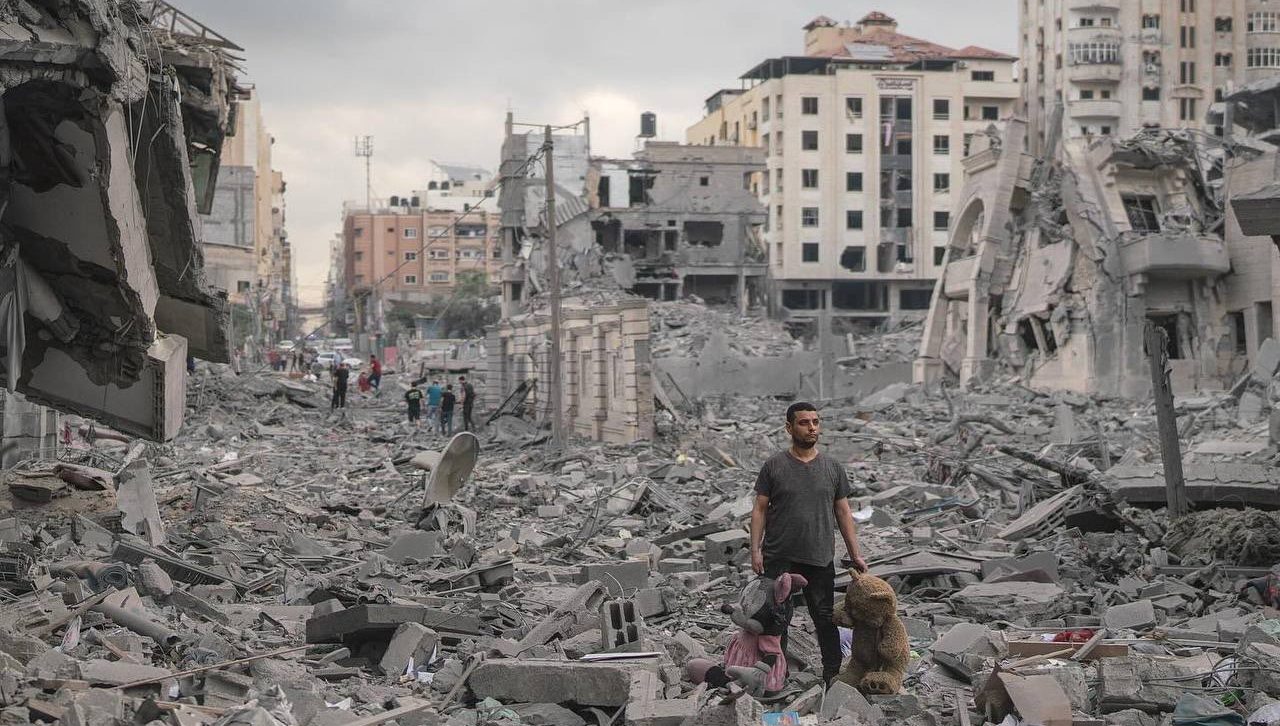Israel has been rejecting all attempts at reaching a ceasefire in Gaza and has persisted in its genocidal war on the enclave.
Optimism remains a possibility as long as Qatar has not declared the cessation of negotiations for the release of hostages in Gaza, an Israeli official has said.
The remark comes after Hamas reportedly froze discussions over a potential hostage release deal with Israel following the killing of the group’s senior leader Saleh al-Arouri in Beirut on Tuesday
Senior Hamas political leader Ismail Haniyeh confirmed the death of Saleh al-Arouri following a targeted Israeli drone attack in Lebanon on Tuesday, calling it “Israeli terrorism, and a violation of Lebanon’s sovereignty.”
“Hamas told mediators about its decision to freeze all discussions about a Gaza ceasefire or hostage swap with Israel,” a source told the Turkish news agency, Anadolu Agency, following al-Arouri’s killing.
Israel has not claimed responsibility for the attack, despite vowing to assassinate all Hamas leaders even on other sovereign territories.
On Wednesday, Israel’s Mossad chief David Barnea said he was committed to “settling the score” with Hamas, adding: “Let every Arab mother know that if her son took part, directly or indirectly, in the October 7 massacre, his blood is forfeit.”
Despite Qatar’s crucial mediation role in the Israeli war on Gaza, Israeli officials have, on multiple occasions, openly stated their intention to carry out targeted killings of Hamas officials abroad, including on the Gulf nation’s soil.
Recent of which was the chief of Israel’s domestic security agency Shin Bet, Ronen Bar, who said: “The cabinet has set us a goal, in street talk, to eliminate Hamas. This is our Munich. We will do this everywhere, in Gaza, in the West Bank, in Lebanon, in Turkey, in Qatar. It will take a few years but we will be there to do it,” in a recording aired by Israel’s public broadcaster Kan in early December.
That was not the first such instance where Israeli officials openly stated their intentions to carry out targeted killings of Hamas officials abroad.
Israel’s plans to pursue Hamas leaders globally were first reported by the Wall Street Journal on December 1.
Israeli Prime Minister Benjamin Netanyahu had reportedly instructed intelligence agencies to develop strategies for assassinating the organisation’s top leaders residing outside of Gaza, including those in Turkey, Qatar, and other locations, according to Israeli officials cited by the WSJ article.
As per the report, suggestions were made to immediately target Hamas leaders residing in Doha following October 7, however carrying out such actions on Qatari or Turkish territory could have strained or jeopardised diplomatic efforts aimed at securing the release of hostages.
Netanyahu made his intentions clear in a nationwide address on November 22 during a press conference with Defense Minister Yoav Gallant.
“I instructed the Mossad to act against Hamas leaders where they are,” he told reporters on November 22.
Netanyahu said: “There is no commitment in the agreement to not act in a truce against the leaders of Hamas, whoever they are.”
In response to questions during the press conference about a possible clause in the ceasefire agreement granting immunity to Hamas leaders, Netanyahu insisted that “such a clause does not exist.”
Gallant further threatened that Hamas officials were “living on borrowed time, all over the globe; they are all dead men.”
Qatar does not have official ties with Israel and has repeatedly reaffirmed its stance against normalising diplomatic relations with the occupying force, unlike other Gulf Arab countries such as the United Arab Emirates and Bahrain which normalised ties with the Zionist state in recent years.
Doha has also been hosting Hamas’ political office since 2012, following a request from Washington to establish channels of communication.
Qatar insists the Doha-based Hamas office serves as an establishment dedicated to peace efforts.
Qatar’s Prime Minister Sheikh Mohammed bin Abdulrahman Al Thani defended the Hamas office on October 14, and said it is a way “of communicating and bringing peace and calm to the region.”
The talks centred around a ceasefire appeared to be at a deadlock following the expiration of a week-long pause on December 1.
The mediation of Qatar, alongside Egypt, had resulted in the temporary truce that lasted between November 24 and December 1 following two extensions.
The pause led to the release of at least 110 Israeli and foreign captives from Gaza, according to a Doha News tally. As part of the deal, Israel released 240 Palestinian women and children from Israeli prisons.
Israel has been rejecting all attempts at reaching a ceasefire in Gaza and has persisted in its genocidal war on the Strip.
Israel’s war on Gaza has persisted for more than three months without a complete ceasefire in sight, killing 22,313 Palestinians and injuring 57,296 others, according to the latest figures by Gaza’s authorities.







